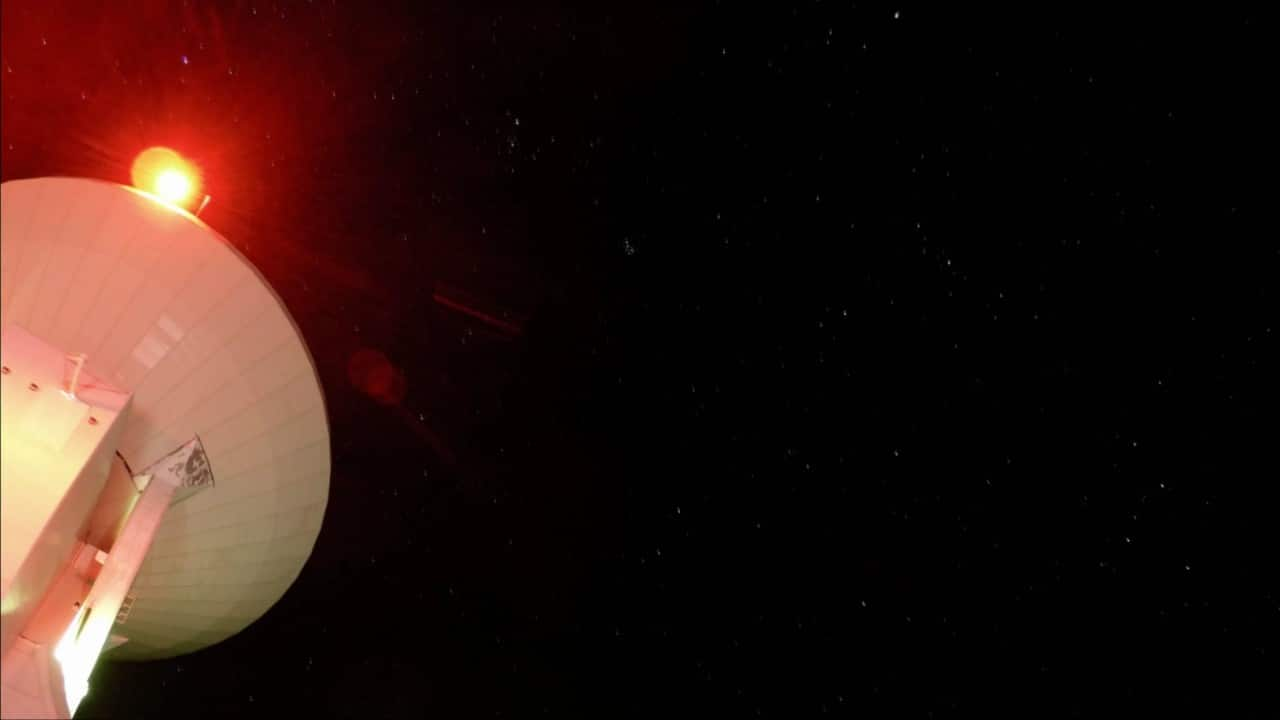



Two years ago, the front pages of newspapers across the world carried an image: a first-of-its-kind picture showing what a black hole looks like. Though the presence of massive black holes was postulated more than four decades ago by star physicist Stephen Hawking, it was only now that conclusive evidence of its presence had been found.
Director Peter Galison shows the film in two different streams. One consists of the efforts by a group of scientists in using the Event Horizon telescope to capture images of black holes; the other is by a set of theoretical physicists, including the late Hawking, in writing a paper about black holes.
The Event Horizon telescope is akin to a mirror scattered all across the world, to capture the first black hole in a galaxy called the Messier 87 or M87.
The documentary itself is hard to understand, even for a physics graduate like me. Many terms and processes are not explained for the layman, and it can be hard to keep up at times. But the way the film has been laid out is nevertheless spellbinding.
 Scientists used the Event Horizon telescope, to capture an image of a black hole (screen grab).
Scientists used the Event Horizon telescope, to capture an image of a black hole (screen grab).
Stephen Hawking’s death on March 14, 2018, comes as a shock to his team. They miss him badly because they feel that he would be hugely excited about the impending development regarding black holes.
The ominous, suspenseful music by Zoe Keating is masterful in evoking the right mood behind the scenes. Her main theme for the documentary is so edgy that it keeps us hooked the whole time. Some music is thematic and underlines certain scenes, bringing coherence to the film.
TRAILER- Black Holes | The Edge of All We Know from Peter Galison on Vimeo.
The picture was four years in the making. The cinematography credited to quite a few technicians is also highly competent. In addition to this, the animation keeps us enthralled for the entire duration of the documentary.
The editing is slick and fast-paced. For example, some footage of the South Pole is used, rather unbelievably, as throwaway shots. The editing must have been laborious, and it is a great credit to the editors that they did such a wonderful job.
 From 'Black Holes: Edge of All We Know'
From 'Black Holes: Edge of All We Know'
I noted with pride that many people interviewed for the documentary were Indians. These include physicists like Gopal Narayanan, Ramesh Narayan and Priyamvada Natarajan. Over 20 physicists and other specialists were interviewed for the film. Many of them remarked that it was a great time to be a scientist, and they were all excited to be part of the adventure.
There is an underlying dullness to the film, though, that its makers try hard to shake off. The subject is in itself very esoteric and does not lend itself to easy filmmaking. I thought that the filmmakers did an adequate job of rescuing the film from its innate tedium.
The documentary is just over 90 minutes. But one feels that they could have taken another half hour to explain the intricacies of a black hole in a better fashion, so that the film is comprehensible to one and all.
Discover the latest Business News, Sensex, and Nifty updates. Obtain Personal Finance insights, tax queries, and expert opinions on Moneycontrol or download the Moneycontrol App to stay updated!
Find the best of Al News in one place, specially curated for you every weekend.
Stay on top of the latest tech trends and biggest startup news.